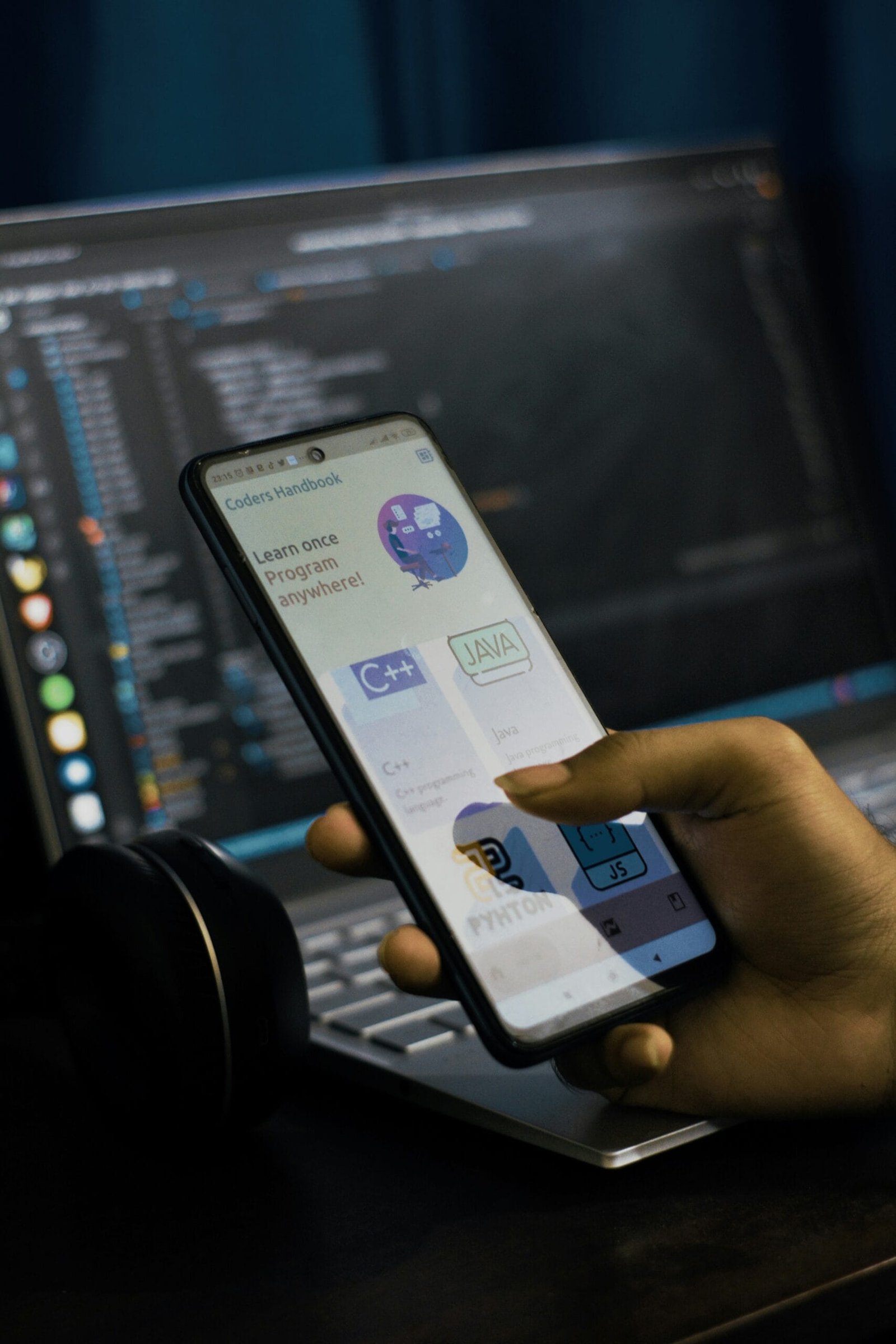Have you ever wondered what it takes to become a mobile app tester? This intriguing and dynamic role plays a crucial part in the ever-evolving world of technology and Web3 ecosystems. In today’s digital world, where mobile applications are a significant part of our daily lives, mobile app testers ensure your experience is as smooth as possible. Let’s take a conversational stroll through the world of mobile app testing to learn about its nuances, responsibilities, and how it intertwines with Web3 technologies.

Understanding the Role of a Mobile App Tester
As a mobile app tester, your primary responsibility is to ensure an application functions correctly and seamlessly on different devices and platforms. Although this may sound straightforward, the role requires a keen eye for detail and a passion for technology.
What is a Mobile App Tester?
A mobile app tester is a professional responsible for testing applications on various mobile devices and platforms. They must guarantee the app’s usability, functionality, and performance, thereby ensuring a positive end-user experience. This process involves identifying bugs, providing detailed feedback to developers, and verifying that bugs are fixed before an app reaches the market.
Key Responsibilities
The day-to-day responsibilities of a mobile app tester can vary greatly depending on the specific project and company. Some of their core duties include:
- Testing and Reporting Bugs: Discovering, documenting, and reporting issues encountered during testing.
- Verifying Fixes: Once bugs are fixed, ensure the resolution does not negatively impact the app’s performance.
- Usability Testing: Assessing the app’s user interface for ease of use and navigation.
- Performance Testing: Evaluating the app’s performance under various network conditions and usage scenarios.
- Update Testing: Testing new updates or patches to ensure new features are functioning properly and previous functionalities remain intact.
Skills Required for Mobile App Testing
Much like an artist needs a brush, a mobile app tester requires a unique set of skills to execute their tasks efficiently.
Technical Skills
- Understanding of Different Platforms: It is crucial to have a strong grasp of iOS, Android, and even emerging platforms like HarmonyOS.
- Familiarity with Testing Tools: Tools such as Appium, Selenium, and JIRA are commonly used in testing.
- Programming Knowledge: A foundational understanding of programming languages like Java, Swift, or Kotlin can be advantageous.
Soft Skills
- Attention to Detail: Small errors can lead to major user dissatisfaction, making attention to detail vital.
- Problem Solving: Ability to think critically and solve problems efficiently is essential.
- Communication Skills: You need to communicate effectively with development teams to ensure issues are addressed swiftly.
Exploring the Connection with Web3
Web3 represents the decentralized internet of the future, built on blockchain technology. Mobile app testers in this domain might find themselves navigating unexplored territories, given Web3’s unique and dynamic nature.
What is Web3?
Web3 refers to the third generation of the internet, emphasizing decentralized protocols and technologies. This includes blockchains, cryptocurrencies, and decentralized applications (dApps).
The Role of Mobile App Testers in Web3
In the Web3 world, mobile app testers must adapt to new technologies and protocols. This includes evaluating the security of dApps and ensuring their efficient functioning on mobile devices.
Unique Challenges in Web3
Testing in the Web3 space presents unique challenges due to its decentralized nature. These include:
- Security Concerns: Testing for vulnerabilities in blockchain-based applications.
- Complex Systems: The interconnections in decentralized networks can be intricate.
How Web3 Changes the Testing Landscape
Web3’s decentralized model changes how applications interact with the internet. Mobile app testers need to understand these changes and adapt testing strategies accordingly. This includes transaction verifications, smart contract testing, and ensuring seamless interactions within decentralized networks.
How to Become a Mobile App Tester
Embarking on a journey to become a mobile app tester involves a mix of education, continuous learning, and hands-on experience.
Educational Pathways
While formal education in software development or computer science is beneficial, it isn’t always necessary. Many testers have backgrounds in various fields but share a common passion for technology and problem-solving.
Recommended Courses and Certifications
- ISTQB (International Software Testing Qualifications Board): Offers recognized certification for software testers.
- Certified Mobile App Tester (CMAT): Focuses specifically on mobile app testing skills.
- Online Courses: Platforms like Coursera and Udacity offer courses on mobile app development and testing.
Gaining Experience
Practical experience is invaluable. Working on real-world projects, participating in internships, or contributing to open-source projects can enhance your skills.
Continuous Learning
Technology is an ever-evolving field. Staying updated with the latest trends, tools, and technologies is crucial. Engaging with communities, attending workshops, and participating in tech forums can aid continual growth.

Challenges in Mobile App Testing
Every profession has its challenges, and mobile app testing is no exception. Let’s delve into some commonly encountered obstacles.
Device Fragmentation
With an array of devices on the market, ensuring compatibility can be challenging. Testers must ensure apps function seamlessly across different screen sizes, operating systems, and hardware configurations.
Rapid Technological Changes
The technology landscape changes rapidly, with new frameworks, updates, and devices constantly emerging. Testers must be agile and quick to adapt to these changes.
User Experience and Feedback
Balancing user feedback with technical constraints can be complex. You must ensure functionality without compromising usability or user satisfaction.
The Future of Mobile App Testing
As technology continues to evolve, the role of mobile app testers will inevitably transform. Here’s a glimpse into the future trends.
Automation in Testing
Automation is increasingly becoming a pivotal part of mobile app testing. Automated tests can save time and improve efficiency, allowing testers to focus on more complex challenges.
Rise of AI and Machine Learning
The integration of AI and machine learning in testing processes is on the rise. These technologies can enhance testing capabilities and provide insights that were previously difficult to uncover.
Growth of Web3 Applications
With Web3’s growth, the demand for mobile app testers familiar with decentralized technologies is likely to increase. This creates new opportunities for testers willing to expand their expertise.

Resources and Communities
Connecting with others in the field can provide valuable insights and support. Here are some resources and communities for aspiring mobile app testers.
Online Communities
- Reddit (r/softwaretesting): A place to discuss testing with other professionals.
- Stack Overflow: A platform for asking questions and sharing knowledge about testing.
Networking Opportunities
Attending conferences and workshops can provide opportunities to learn and network with peers. Some notable ones include:
- QA Global Summit: A conference focusing on quality assurance and testing.
- TestBash: A series of software testing conferences held worldwide.
Keeping Updated with Blogs and Articles
Following industry blogs and articles can help you stay informed about the latest trends and tools. Some popular options include:
- Ministry of Testing: Offers testing resources, articles, and a community forum.
- TestProject Blog: Provides articles on various testing tools and strategies.
Conclusion
Becoming a mobile app tester is an exciting and rewarding journey. As you navigate the challenging yet fulfilling world of mobile app testing, you’ll play a crucial role in shaping the digital experiences of tomorrow. Whether you’re intrigued by the technical aspects or motivated by the desire to solve complex problems, there’s a place for you in this dynamic field.
Your role as a mobile app tester not only contributes to enhancing user experiences but also bridges the gap between innovative technologies and everyday users. Embrace the challenges, keep learning, and use your skills to leave a mark on the technology landscape.
